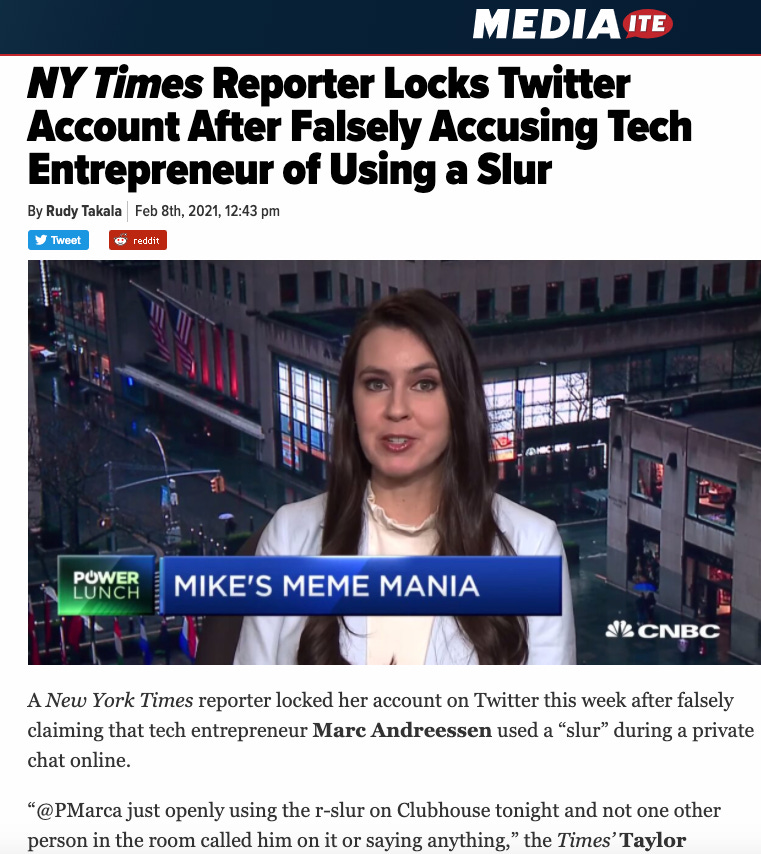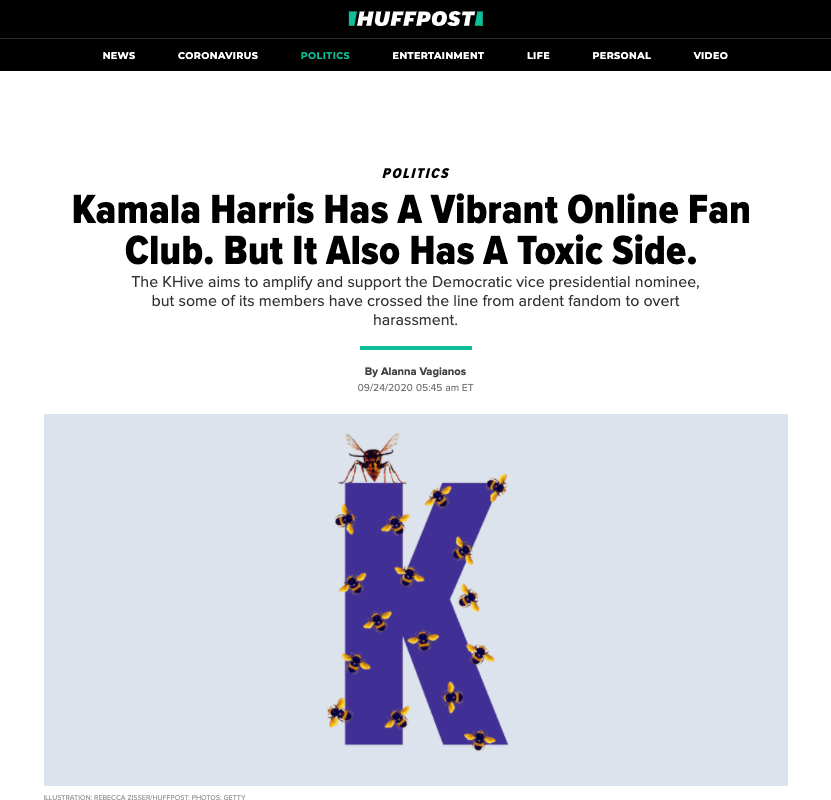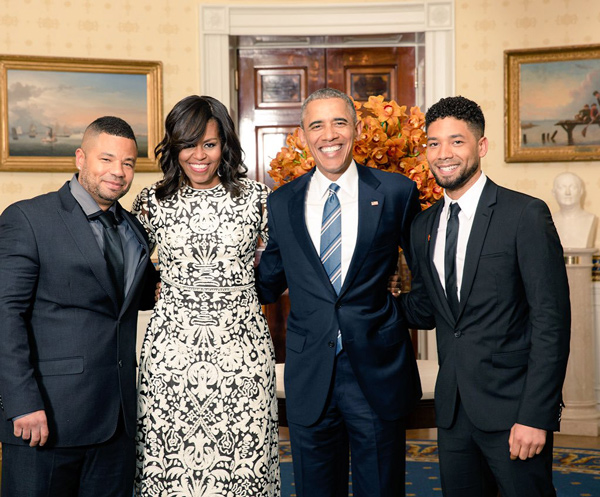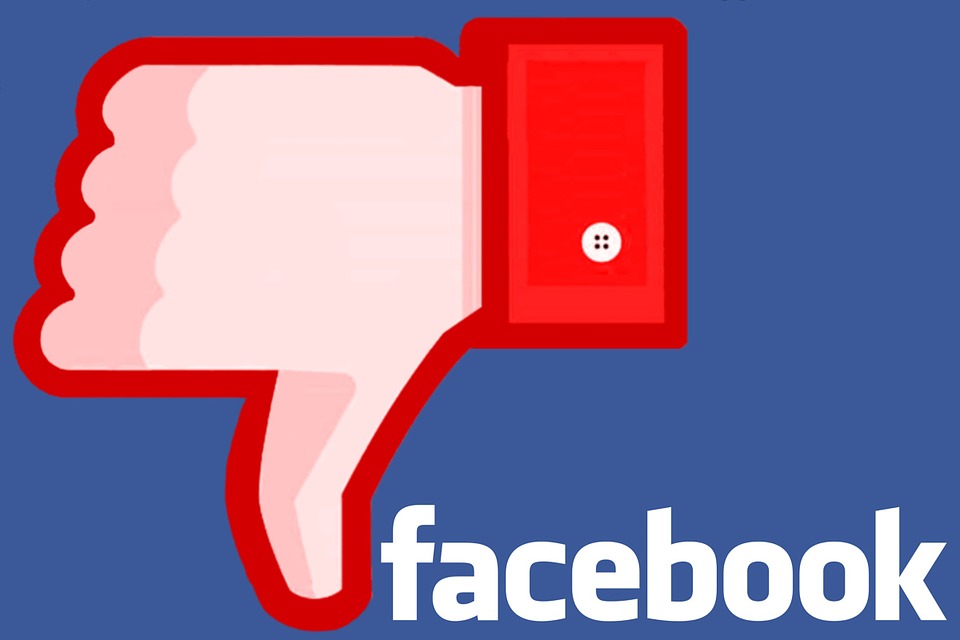GREENWALD: Criticizing public figures, including influential journalists, is not harassment or abuse
03/13/2021 / By News Editors

The most powerful and influential newspaper in the U.S., arguably the West, is The New York Times. Journalists who write for it, especially those whose work is featured on its front page or in its op-ed section, wield immense power to shape public discourse, influence thought, set the political agenda for the planet’s most powerful nation, expose injustices, or ruin the lives of public figures and private citizens alike. That is an enormous amount of power in the hands of one media institution and its employees. That’s why it calls itself the Paper of Record.
(Article republished from Greenwald.Substack.com)
One of the Paper of Record’s star reporters, Taylor Lorenz, has been much discussed of late. That is so for three reasons. The first is that the thirty-six-year-old tech and culture reporter has helped innovate a new kind of reportorial beat that seems to have a couple of purposes. She publishes articles exploring in great detail the online culture of teenagers and very young adults, which, as a father of two young Tik-Tok-using children, I have found occasionally and mildly interesting. She also seeks to catch famous and non-famous people alike using bad words or being in close digital proximity to bad people so that she can alert the rest of the world to these important findings. It is natural that journalists who pioneer a new form of reporting this way are going to be discussed.
The second reason Lorenz is the topic of recent discussion is that she has been repeatedly caught fabricating claims about influential people, and attempting to ruin the reputations and lives of decidedly non-famous people. In the last six weeks alone, she twice publicly lied about Netscape founder Marc Andreessen: once claiming he used the word “retarded” in a Clubhouse room in which she was lurking (he had not) and then accusing him of plotting with a white nationalist in a different Clubhouse room to attack her (he, in fact, had said nothing).
She also often uses her large, powerful public platform to malign private citizens without any power or public standing by accusing them of harboring bad beliefs and/or associating with others who do. (She is currently being sued by a citizen named Arya Toufanian, who claims Lorenz has used her private Twitter account to destroy her reputation and business, particularly with a tweet that Lorenz kept pinned at the top of her Twitter page for eight months, while several other non-public figures complain that Lorenz has “reported” on their non-public activities). It is to be expected that a New York Times journalist who gets caught lying as she did against Andreessen and trying to destroy the reputations of non-public figures will be a topic of conversation.
The third reason this New York Times reporter is receiving attention is because she has become a leading advocate and symbol for a toxic tactic now frequently used by wealthy and influential public figures (like her) to delegitimize criticisms and even render off-limits any attempt to hold them accountable. Specifically, she and her media allies constantly conflate criticisms of people like them with “harassment,” “abuse” and even “violence.”
That is what Lorenz did on Tuesday when she co-opted International Women’s Day to announce that “it is not an exaggeration to say that the harassment and smear campaign I have had to endure over the past year has destroyed my life.” She began her story by proclaiming: “For international women’s day please consider supporting women enduring online harassment.” She finished it with this: “No one should have to go through this.” Notably, there was no mention, by her or her many media defenders, of the lives she has harmed or otherwise deleteriously affected with her massive journalistic platform.
That is deliberate. Under this formulation, if you criticize the ways Lorenz uses her very influential media perch — including by pointing out that she probably should stop fabricating accusations against people and monitoring the private acts of non-public people — then you are guilty of harassing a “young woman” and inflicting emotional pain and violence on her (it’s quite a bizarre dynamic, best left to psychologists, how her supporters insist on infantilizing this fully grown, close-to-middle-aged successful journalist by talking about her as if she’s a fragile high school junior; it’s particularly creepy when her good male Allies speak of her this way).
Taylor Lorenz went after me on-and-off for weeks over my activity on Clubhouse, screencapping my invites and rooms and insinuating to her following that I was some sort of racist nutcase. The only woman she's ever given a flying fuck about is herself.
— Mason 🏃♂️✂️𐃏 (@webdevMason) March 9, 2021
This is worth focusing on precisely because it is now so common among the nation’s political and media elite. By no means is this tactic unique to Lorenz. She did not pioneer it. She is just latching onto it, exploiting it, in order to immunize herself from criticisms of her destructive journalistic misconduct and to depict her critics as violent harassers and abusers. With this framework implanted, there is no way to express criticisms of Taylor Lorenz’s work and the use and abuse of her journalistic platform without standing widely accused of maliciously inciting a mob of violent misogynists to ruin her life — that’s quite a potent shield from accountability for someone this influential in public life.
But this is now a commonplace tactic among the society’s richest, most powerful and most influential public figures. The advent of the internet has empowered the riff-raff, the peasants, the unlicensed and the uncredentialed — those who in the past were blissfully silent and invisible — to be heard, often with irreverence and even contempt for those who wield the greatest societal privileges, such as a star New York Times reporter. By recasting themselves as oppressed, abused and powerless rather than what they are (powerful oppressors who sometimes abuse their power), elite political and media luminaries seek to completely reverse the dynamic.
During Hillary Clinton’s ill-fated 2016 presidential campaign, one of the most common tactics used by her political and media supporters was to cast criticisms of her (largely from supporters of Bernie Sanders) not as ideological or political but as misogynistic, thus converting one of the world’s richest and most powerful political figures into some kind of a victim, exactly when she was seeking to obtain for herself the planet’s most powerful political office. There was no way to criticize Hillary Clinton — there still is not — without being branded a misogynist.
A very similar tactic was used four years later to vilify anyone criticizing Sen. Elizabeth Warren (D-MA) — also one of the world’s richest and most powerful figures — as she sought the power of the Oval Office. A major media theme was that she was being brutally assaulted by Sanders supporters who were using snake emojis to express dissatisfaction with what they believed was her less-than-scrupulous campaign, such as relying on millions of dollars in dark money from an anonymous Silicon Valley billionaire to stay in the race long after the immense failure of her campaign was manifest, and attempting to depict Sanders as a woman-hating cretin. When Warren finally withdrew from the race after having placed no better than third in any state including her own, Rachel Maddow devoted a good chunk of her interview with the Senator and best-selling author to exploring the deep trauma she experienced from the snake emojis.
When Joe Biden announced his choice of Janet Yellen as Treasury Secretary and various news outlets reported that she had spent the last several years collecting many millions of dollars in speaking fees from the very Wall Street banks over whom she would now exercise immense power, the reporters who disclosed these facts and those expressing concern about them were accused of sexism. Somehow, a narrative was peddled under which one of the multi-millionaire titans of the global neoliberal order was reduced to a helpless victim, while the far less powerful people questioning the ethics and integrity of her conduct became her persecutors.
One of the many ironies of these tawdry attempts to shield the world’s most powerful people from criticism is that they fundamentally rely upon the exact stereotypes which, in prior generations, had been deployed to deny women, racial minorities and LGBTs fair and equal opportunities to ascend to powerful positions. Those who purport to be supporters of Lorenz speak of her not as what she is — a successful and wealthy professional woman in her mid-30s who has amassed a large amount of influence and chose a career whose purpose is supposed to be confronting powerful people — but instead as a delicate, young flower, incapable of withstanding criticisms:
This is dangerous and disgusting. Someone asks for help after suffering online harassment, and this man mocks her in prime time — using her full name five separate times — in an obvious attempt to encourage more harassment. We are better than this. https://t.co/zlCcf84bgG
— Steve Peoples (@sppeoples) March 10, 2021
In the paradigm peddled by Maddow, Elizabeth Warren was instantly transformed from an outspoken, intrepid Harvard Law Professor, consumer advocate, and influential lawmaker into a vulnerable abuse victim. Anonymous Sanders supporters were the ones wielding the real power and strength in this warped and self-serving framework. In order to shield themselves from the same scrutiny and accountability every other powerful public figure receives, they’re resuscitating the most discredited and antiquated myths about who is strong and weak, who requires protection and special considerations and who does not.
No discussion of this tactic would be complete without noting its strong ideological component: its weaponization for partisan aims. Say whatever you’d like about journalists like Laura Ingraham or Mollie Hemingway or Briahna Joy Gray or political figures such as Kellyanne Conway, Susan Collins or Kirstjen Nielsen. Have at it: the sky’s the limit. Let it all fly without the slightest concern for accusations of misogyny, which, rest easy, will not be forthcoming no matter how crude or misogynistic the attacks are.
One also need not worry about accusations of anti-Semitism if one opposes the landmark quest of Bernie Sanders to become the first Jewish president or even expresses bitter contempt for him. No bigotry allegations will be applied to critics of Clarence Thomas, Tim Scott, Nikki Haley, Richard Grenell, or Ben Carson.
This transparent tactic is part-and-parcel of the increasingly ideological exploitation of identity politics to shield the neoliberal order and its guardians from popular critique. Step lightly if you want to criticize the bombing of Syria because the Pentagon is now led by an African-American Defense Secretary and Biden just promoted two female generals. No objecting to the closeness between the Treasury Secretary and Wall Street banks because doing so is a misogynistic attempt to limit how women can be paid. Transportation policy should be questioned only in the most polite tones lest one stand accused of harboring anti-gay animus for the department’s Secretary.
The CIA and FBI celebrate its diverse workforce in the same way and for the same reason that gigantic corporations do: to place a pretty but very thin veneer on the harmful role they play in the world. The beneficiaries of this tactic are virtually always the powerful, while the villains are their critics, especially when those critics are marginalized. It is a majestic reversal of the power dynamic.
Those who invoke this shield on their own behalf do so by claiming that they receive abusive and bigoted messages and even threats online. I have no doubt that they are telling the truth. In the age of social media, anyone with a significant public platform will inevitably be subjected to ugly vitriol. Often the verbal assaults are designed for the person’s gender, race, sexual orientation, religion, ethnicity and other aspects of their demographic identity in order to be as hurtful as possible.
In response to Lorenz’s use of International Women’s Day to elevate her suffering to center stage, Guardian reporter Julia Carrie Wong described her own personal experience to argue that verbal condemnations from angry readers can cause “serious mental anguish and made me fear for my own safety and that of my family.” She acknowledged that “it’s not physical or material harm” and is “not legal persecution,” but, she said, it is nonetheless “a very real, constant, negative force in my life, something I have to think about all the time, and that sucks.”
It is hard to dispute Wong’s claims. Not only do studies demonstrate that a barrage of online criticism can adversely affect one’s mental health, I can speak from personal experience — vast, sustained, and intense personal experience — about what it is like to be the target of coordinated, bigoted and threatening attacks because of one’s reporting.
When Jair Bolsonaro was in the middle of his successful presidential candidate in 2017, he hurled an anti-gay slur at me using his Twitter account to his millions of followers. In 2019, he publicly claimed my marriage to my husband and our adoption of two Brazilian children were fraudulent, done only to prevent my deportation. Does it take any imagination to envision what my email inbox and online messages were like for months after each of those episodes?
From the time my colleagues and I at The Intercept Brazil began our multi-part exposé about corruption on the part of high-level Bolsonaro officials in mid-2019, my name trended on Brazilian Twitter on a virtually daily basis for weeks if not longer, accompanied by demands for my deportation and arrest. Much of the vitriol was anti-gay in theme, to put that mildly. My husband, one of the only openly gay members of Congress in the history of Brazil, and I have received a non-stop deluge of very specific death threats aimed at our family and our children. As a result of that, none of us — him, me or our two children — have left our home in almost two years without armed security and an armored vehicle. And it all culminated in the attempt to criminally prosecute me last year on over 100 felony counts.
That is most definitely not the first time I’ve encountered such criticisms and attacks, nor, I say with confidence, will it be the last. I was unable to leave Brazil for almost a year after returning from Hong Kong where I met Edward Snowden and published our first reports on the NSA due to publicly and privately expressed threats from U.S. officials of criminal prosecution.
I’m so far from unique in any of this. These kinds of recriminations are inherent to journalism (when done well), to confronting those in power, to insinuating yourself into controversial and polarizing political debates and controversies. Journalists love to laud themselves for “speaking truth to power” but rarely think about what that actually means.
If you do journalism well, then you’re going to make people angry, and if you’re making people angry, then they are going to say unpleasant and hurtful things about you. If you’re lucky, that is all that will happen. The bigger your platform, the more angry people there will be, and the angrier they will be. The more powerful the people angered by your work, the more intense the retaliation. That is what it means to call someone “powerful”: they have the capacity to inflict punishment on those who impede them.
Death threats like this one arrive in my inbox every week at least. When a news event related to our work transpires that angers large numbers of people — such as this week’s news that the criminal convictions of former President Lula da Silva have been invalidated and his political rights restored, thus rendering him eligible to run against Bolsonaro in 2022 — those threats and vituperative messages intensify greatly and we are forced to enhance our security measures.
Anyone who cannot endure that, or who does not want to, is well-advised not to seek out a public platform and try to become an influential figure who helps shape discourse, debate and political outcomes, and especially not to become a reporter devoted to exposing secret corruption by powerful factions. It would obviously be better if all of that did not happen, but wishing that it would stop is like hoping it never rains again: not only is it futile, but — like rain — there are cleansing and healthy aspects to having those who wield influence and power have to hear from those they affect, and anger.
But with that cost, which can be substantial, comes an enormous benefit. It is an immense privilege to have a large platform that you can utilize to shape the society around you, reach large numbers of people, and highlight injustices you believe are being neglected. Those who have that, and who earn a living by pursuing their passion to use it, are incredibly fortunate. Journalists who are murdered or imprisoned or prosecuted for their work are victims of real persecution. Journalists who are maligned with words are not, especially when those words come not from powerful state officials but from random people on the internet.
And even when such criticisms do emanate from powerful officials, it still does not rise to the level of persecution: when Jair Bolsonaro hurled an anti-gay slur at me online and then maligned our family at a press conference, it was not even in the same universe of difficulty as being threatened with prosecution by the U.S. or Brazil governments or receiving credible death threats. I’ve said plenty of critical things about him as well. That is why I always found it so preposterous to treat Trump’s mean tweets about Chuck Todd or Jim Acosta like some grave threat to press freedom. Imprisoning Julian Assange for publishing documents is a dangerous press freedom attack; mocking Wolf Blitzer’s intellect is not. And if the U.S. President’s mean words about journalists do not constitute an attack on press freedom — and they do not — then surely the same is true of random, powerless people online.
That is why I do not consider myself remotely victimized: I chose to do this work knowing what it would entail if I did it well, and I continue to do it, rather than do something else, because it is a price worth paying. It is fulfilling and gratifying work to me, and I see the recriminations as proof of its efficacy. Not everyone will have that same calculus, which is why different people make different choices for their lives based on their assessments of the costs and benefits inherent in them, but the framework is essentially the same for everyone.
What I ultimately find most repellent and offensive about this incessant self-victimization from society’s most powerful and privileged actors is the conceit that they are somehow unique or special in the treatment they receive, as if it only happens to people like them. That is the exact opposite of reality: everyone with a public platform receives abuse and ugly attacks, and there are members of every faction who launch them. If you have any doubts about that, go criticize Kamala Harris and see what kind of staggeringly bigoted and hateful abuse you get back in return.
Whenever this tactic is hauled out in defense of neoliberal leaders — to claim that Sanders supporters are uniquely abusive, or that Corbyn supporters are, or that Trump supporters are: basically that everyone is guilty of abusive behavior except neoliberals and their loyal followers — the real purpose of it becomes clear. It is a crowd-control technique, one designed to build a gigantic moat and drawbridge to protect those inside the royal court from the angry hordes outside of it.
Last week, I participated in a debate on Al Jazeera about online censorship with the liberal British journalist Yasmin Alibhai-Brown. She was quite a reasonable and candid advocate of the need for online censorship and I found the discussion consequently illuminating, particularly because she was so blunt about what she believes is the real problem that online censorship needs to solve. Listen to what she said:
Precisely. “It’s not like it used to be.” The problem is that “this is not civilized discourse” to them because “it’s often coming from some of the least educated and most angry.” That’s why online censorship is needed. That’s why media figures need to unite to demonize and discredit their critics. It is because people like Taylor Lorenz — raised in Greenwich, Connecticut, educated in a Swiss boarding school, writing on the front page of The New York Times — now hears from “the least educated and most angry.” This is the societal crisis — one of caste — that they are determined to stop.
Taylor Lorenz and her media allies know that she is more privileged and influential than you are. That is precisely why they feel justified in creating paradigms that make it illegitimate to criticize her. They think only themselves and those like them deserve to participate in the public discourse. Since they cannot fully control the technology that allows everyone to be heard (they partially control it by pressuring tech monopolies to censor their adversaries), they need to create storylines and scripts designed to coerce their critics into silence.
Knowing that you will be vilified as some kind of brute abuser if you criticize a New York Times reporter is, for many people, too high of a price to pay for doing it. So people instead refrain, stay quiet, and that is the obvious objective of this lowly strategy.
Read more at: Greenwald.Substack.com
Tagged Under: bigotry, cancel culture, Crybullies, government, intolerance, Journalism, left cult, Left-wing, Libtards, lies, lunatics, mainstream media, New York Times, NYT, politics, propaganda, woke, wokeness
RECENT NEWS & ARTICLES
COPYRIGHT © 2017 CRYBULLIES NEWS





















